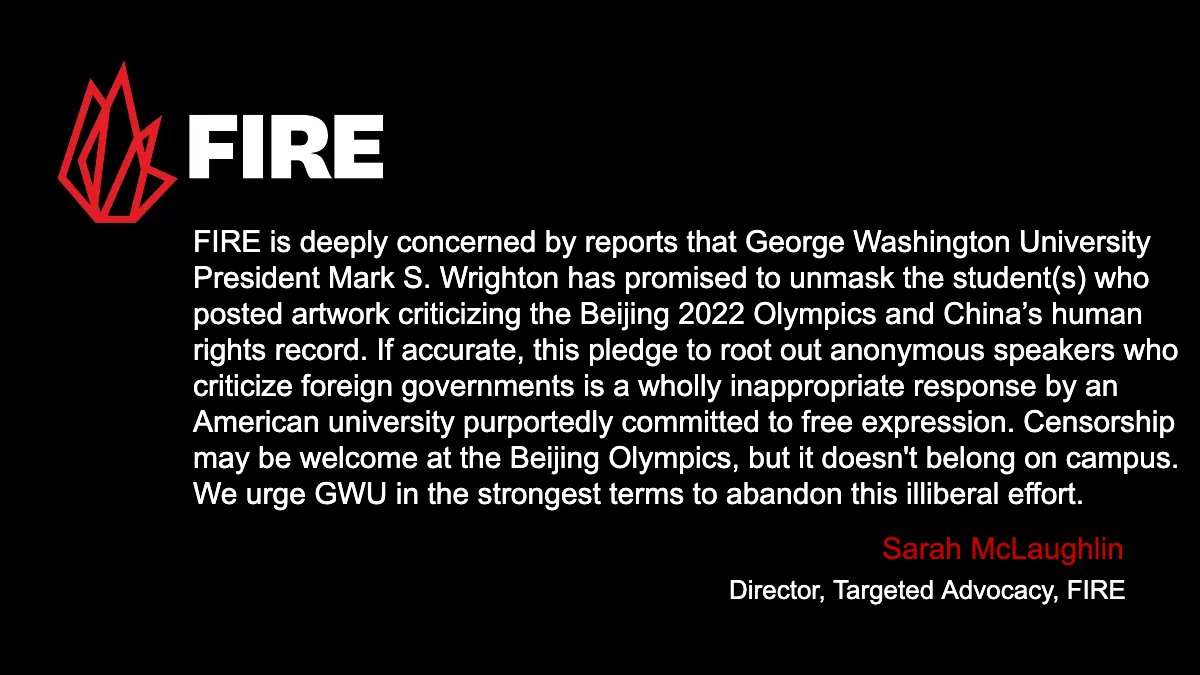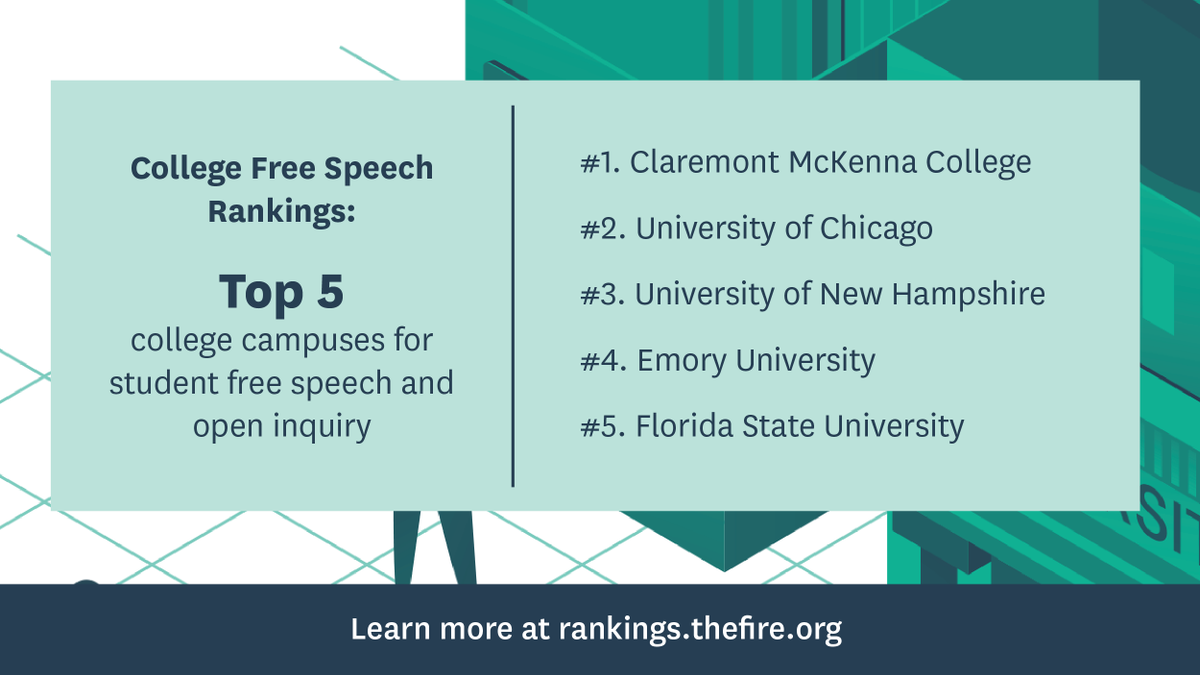
In response to reported efforts to identify who posted flyers depicting @badiucao's artwork at George Washington University: 

BREAKING:
@GWtweets President @PresWrightonGW backs down, writing that he "responded hastily." He says his response and the removal of the posters were "mistakes".
"I support freedom of speech—even when it offends people," he writes.
@GWtweets President @PresWrightonGW backs down, writing that he "responded hastily." He says his response and the removal of the posters were "mistakes".
"I support freedom of speech—even when it offends people," he writes.
https://twitter.com/rwocon/status/1490755843293331461@gwhatchet
@GWtweets @PresWrightonGW @gwhatchet "The next time GW is faced with censorship demands, it should first look to its free speech commitments rather than investigations," said FIRE's @sarahemclaugh.
@badiucao #FreeSpeech
@badiucao #FreeSpeech

• • •
Missing some Tweet in this thread? You can try to
force a refresh








